
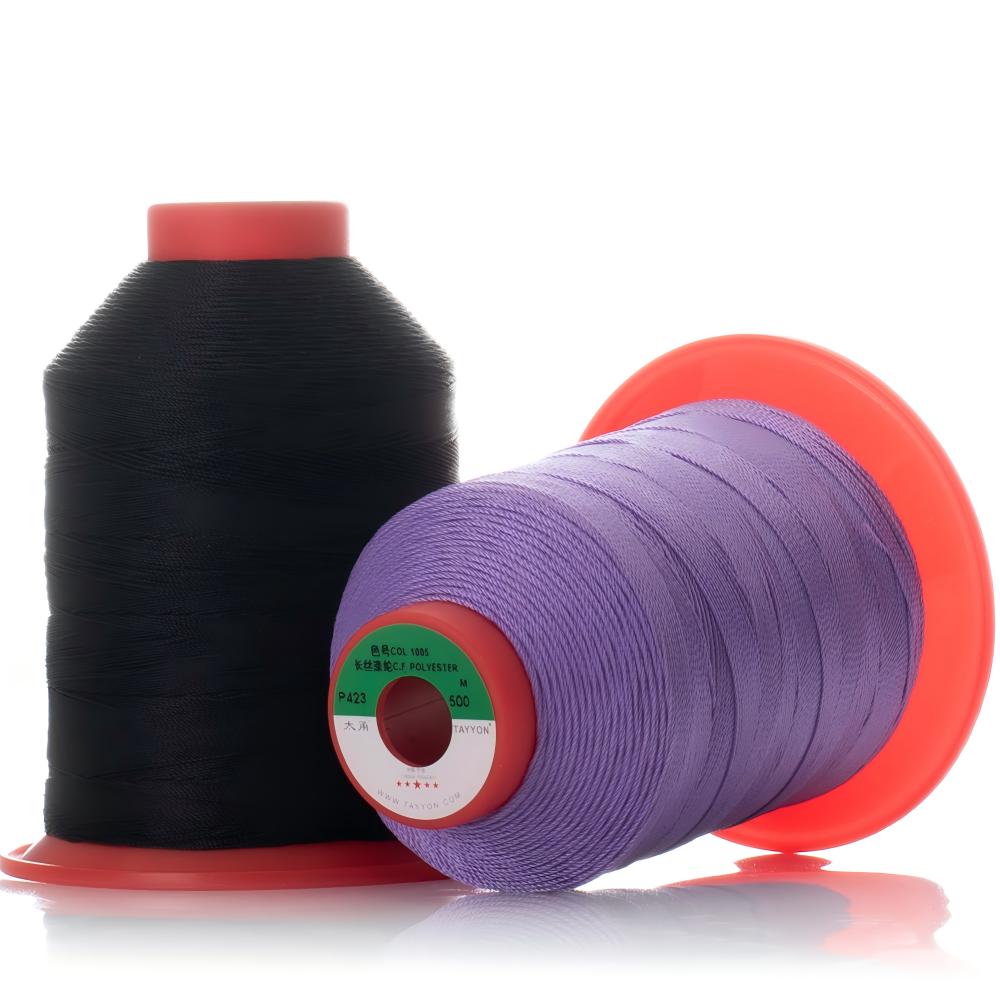
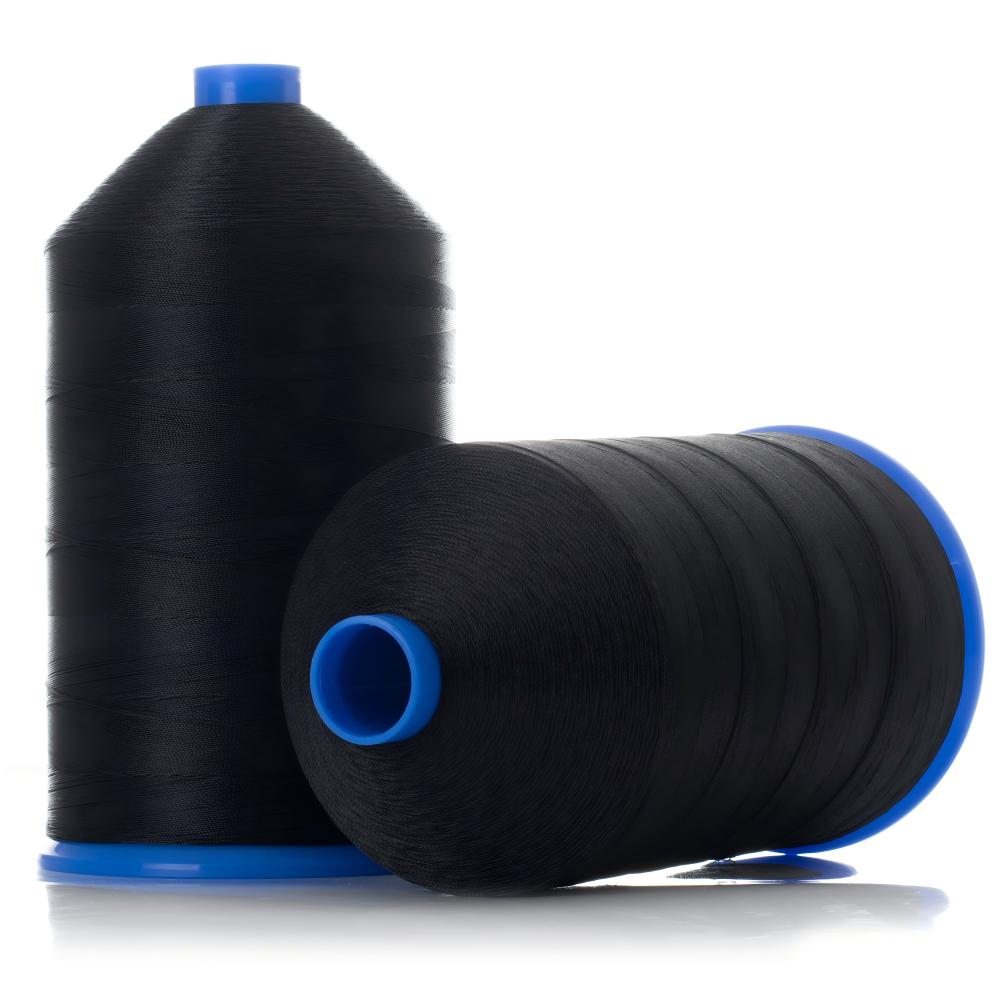
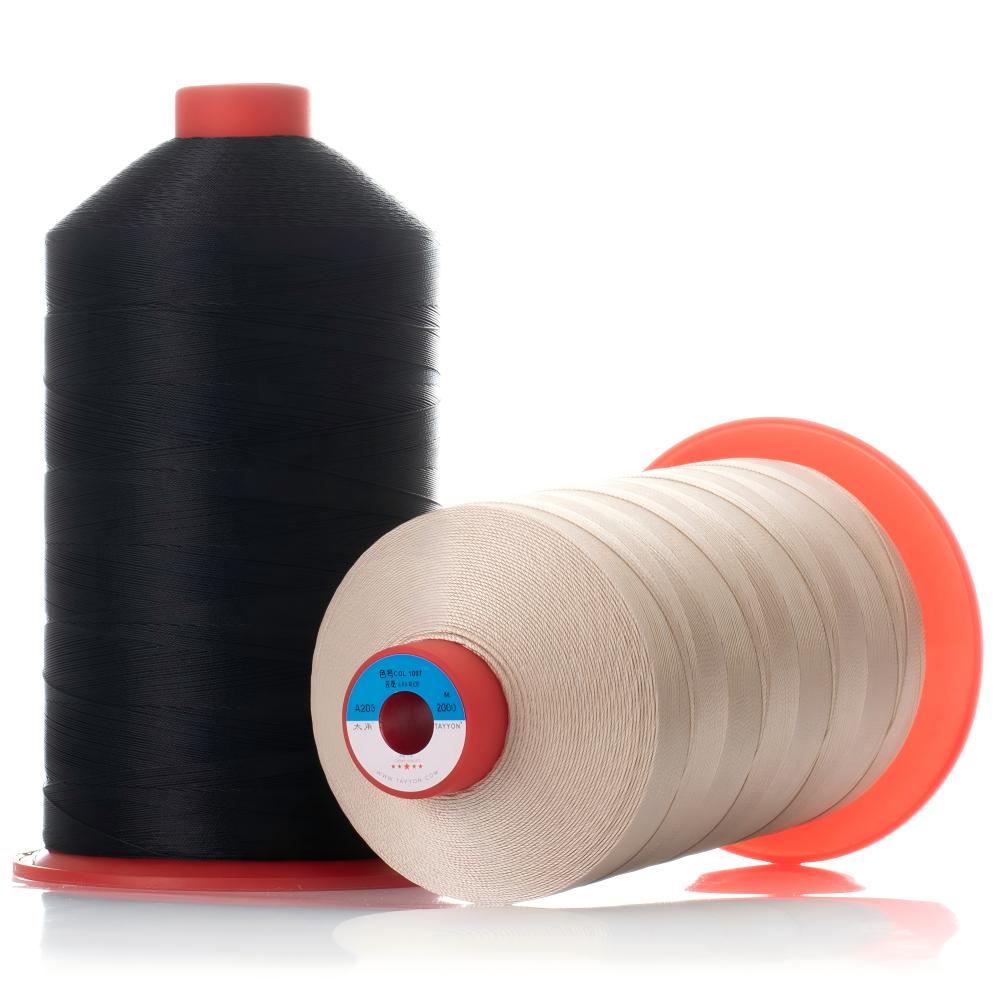
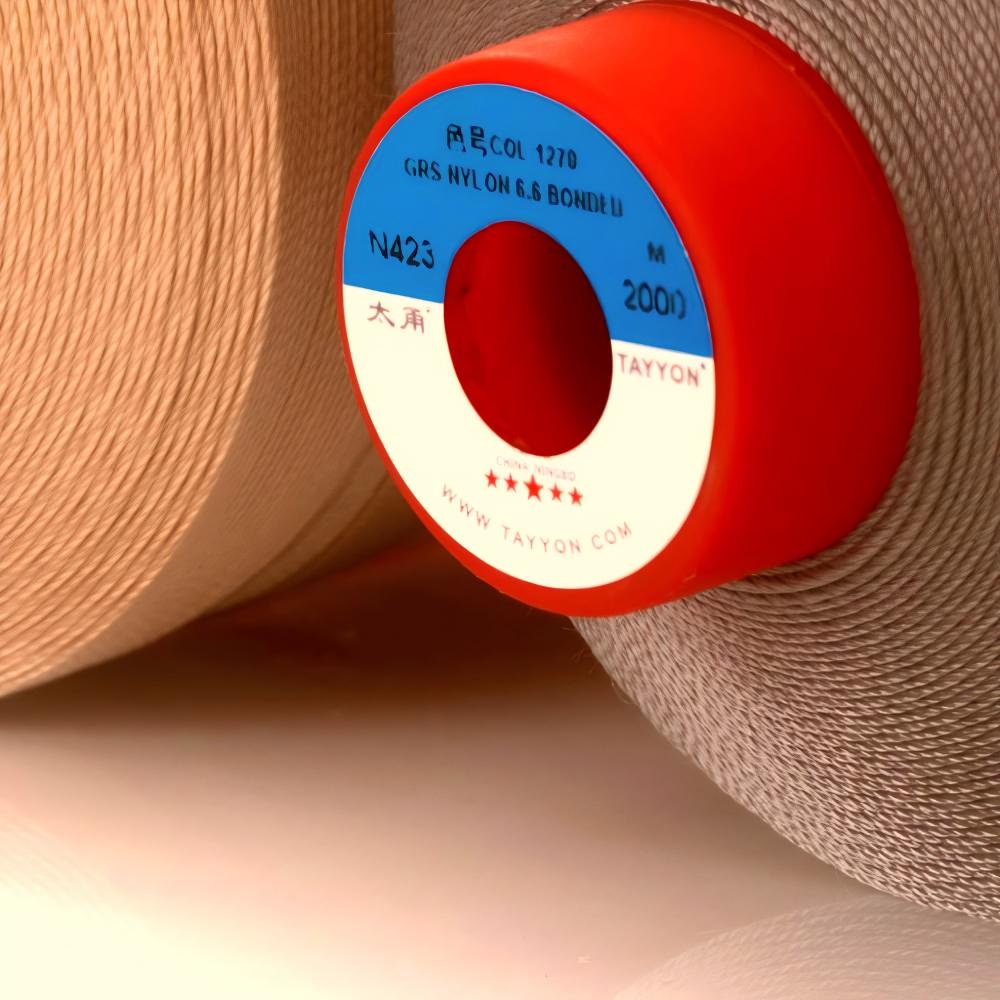
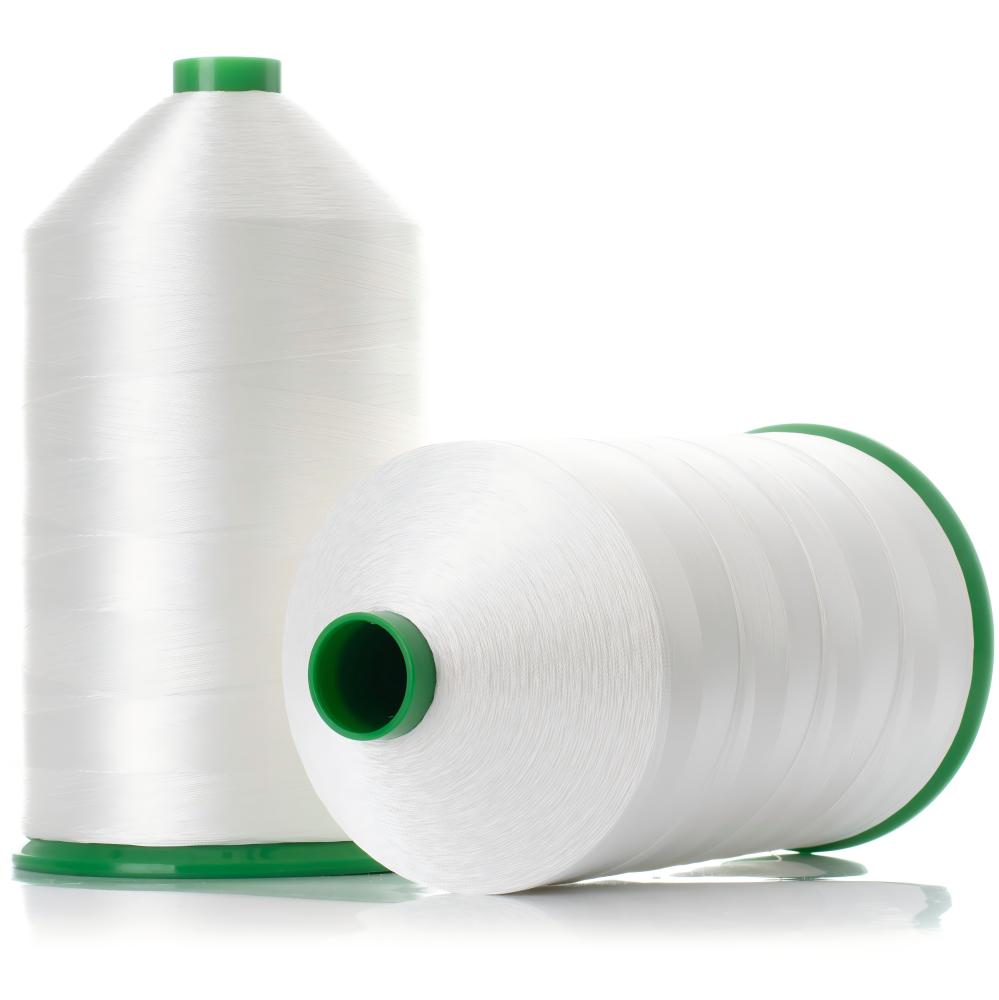
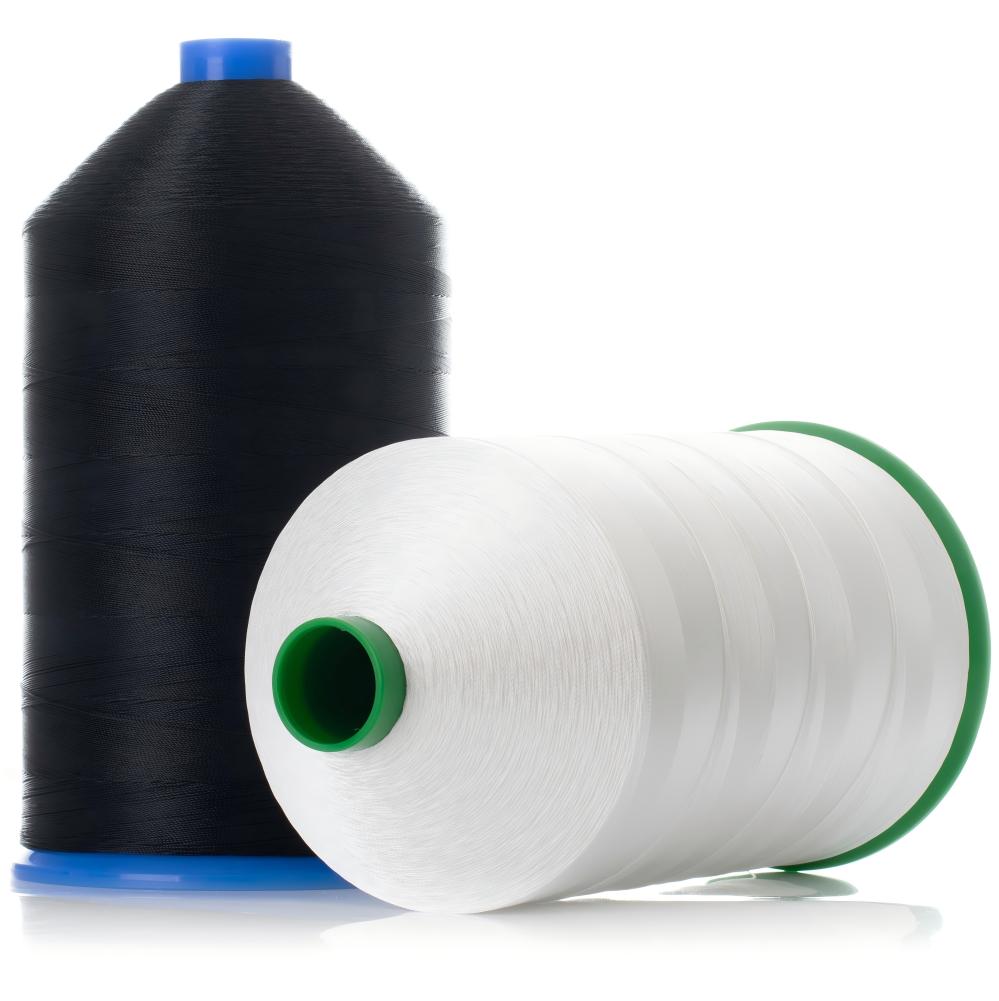
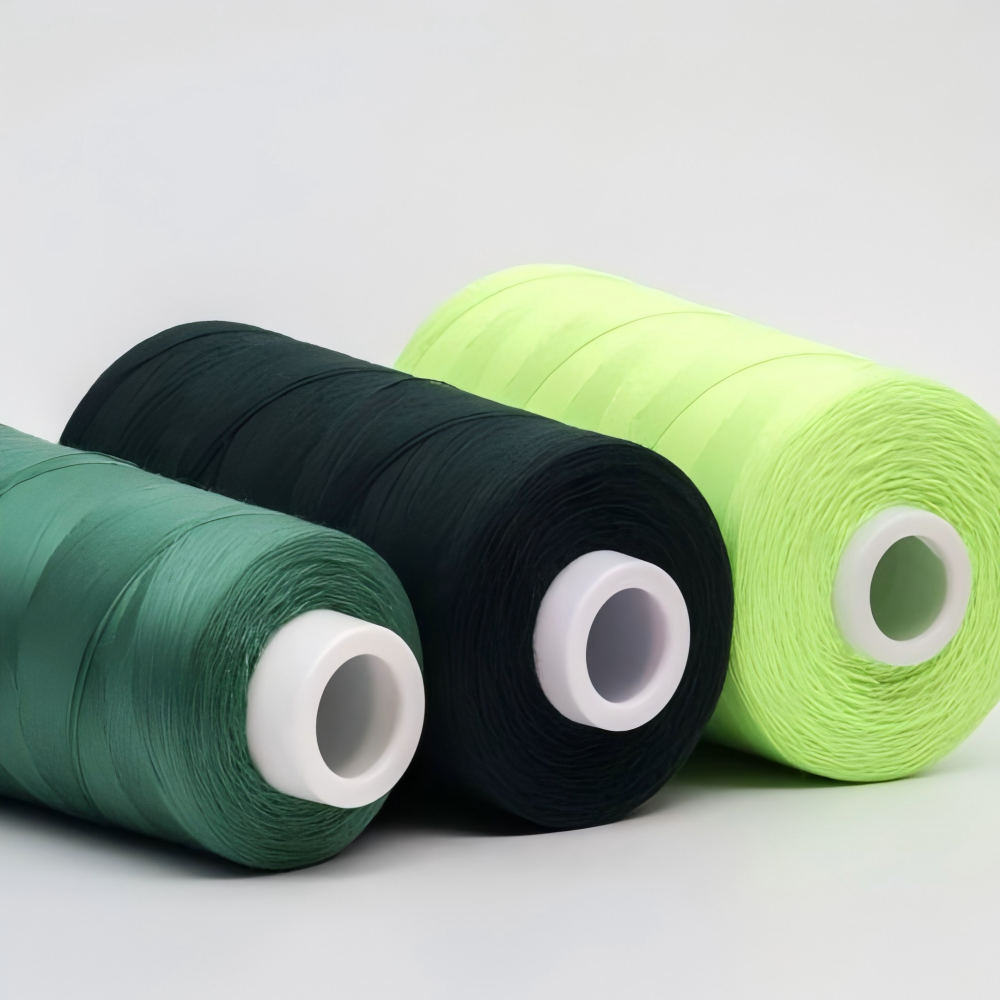
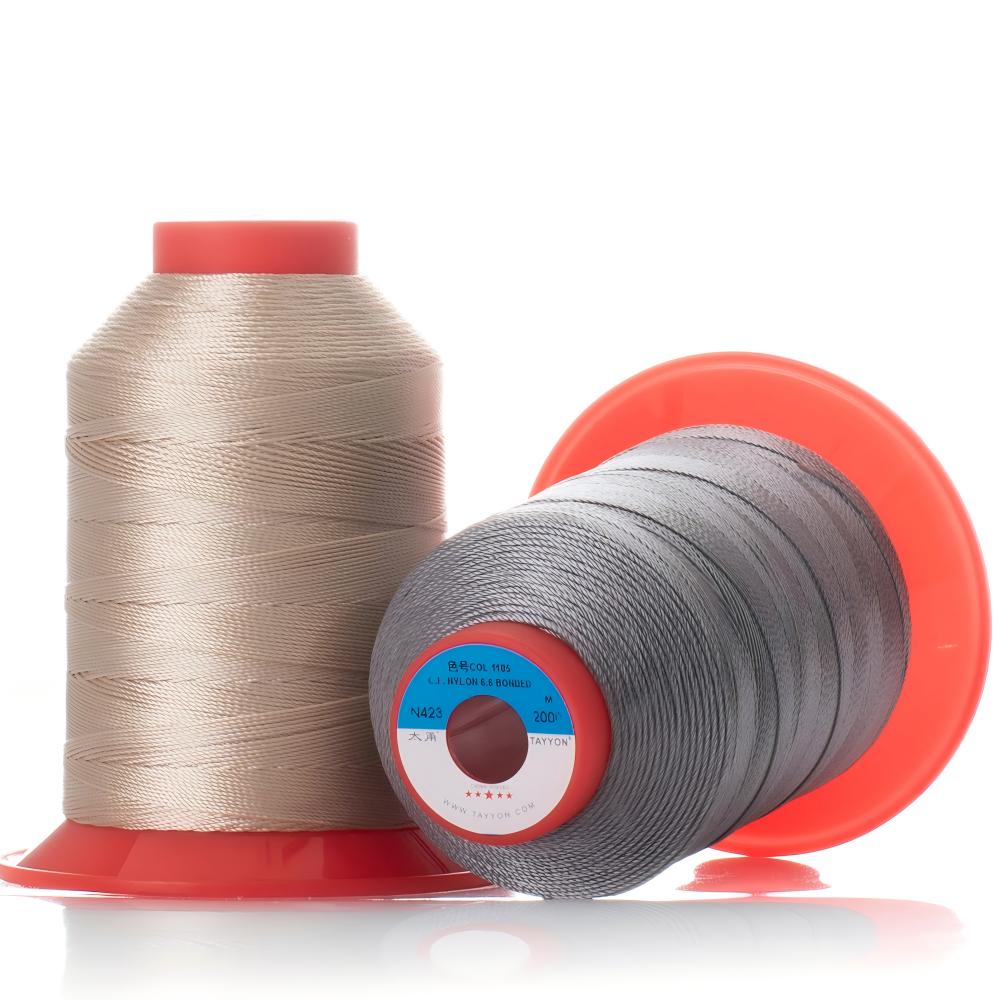
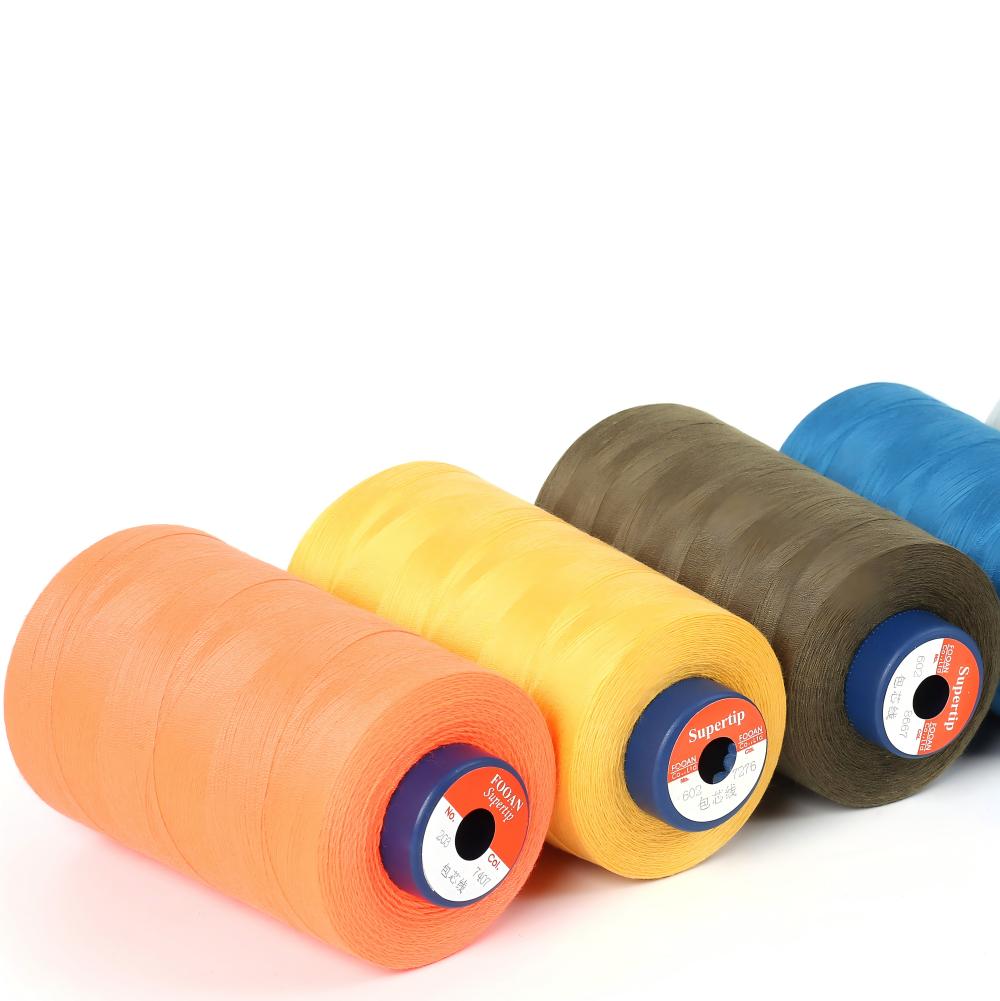
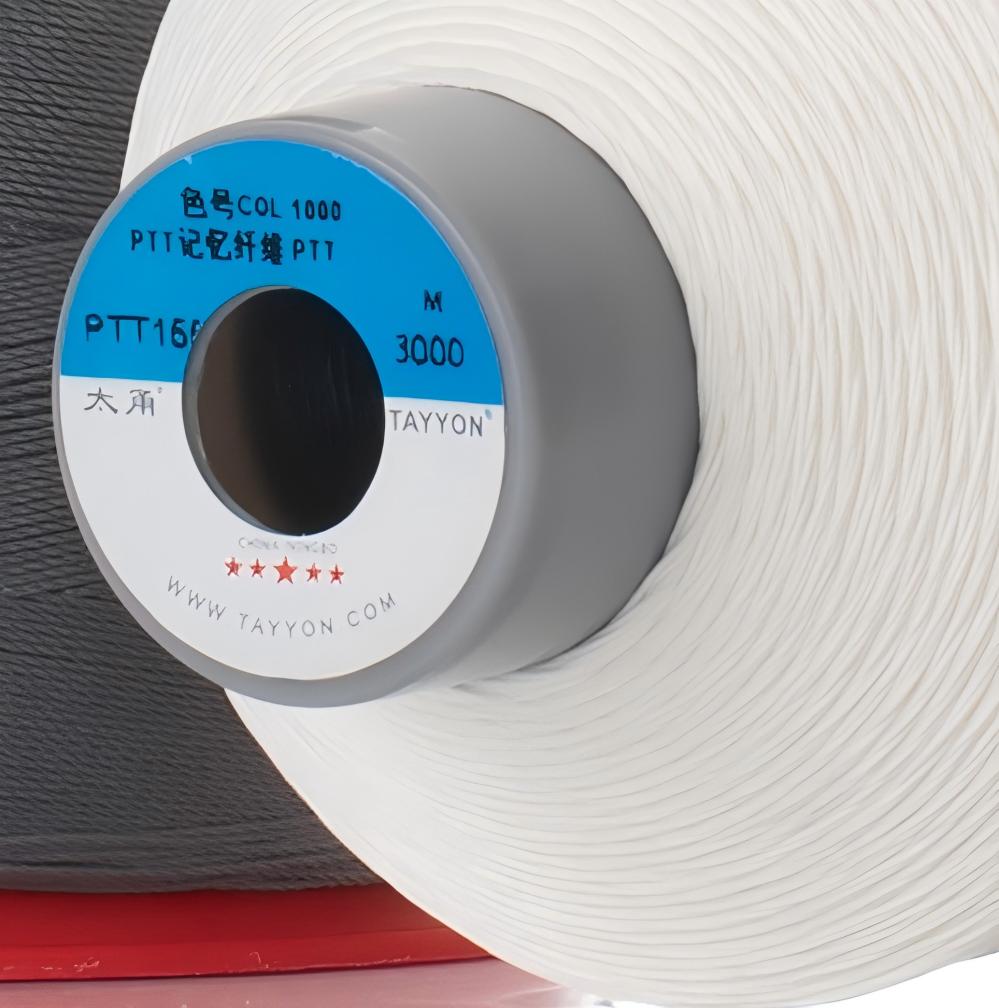
 Tel
Tel Email
EmailBonded Nylon 66 Sewing Thread: 6 Advantages for Sewing Automotive Seats I
Release time:2025-09-25 Click:491Nylon bonded thread is a filament high tenacity nylon sewing thread with extra bond process, wherein nylon 66 bonded thread is an excellent choice for automotive seat & interior.
First, we need to understand the extreme conditions and usage demands faced by automotive seats: ● High-Intensity Use: Frequent sitting, rising, pressure, and friction. ● Extreme Temperature Fluctuations: Interior temperatures can reach 70-80°C under summer sun exposure, and drop to dozens of degrees below zero in winter cold. ● UV Radiation: Long-term exposure to sunlight causes material aging. ● Exposure to Chemicals: Sweat, oils, cleaning agents, etc. ● Safety Requirements: The strength of the stitching directly affects whether the seat splits open in a collision, impacting overall structural integrity.
Under these demanding conditions, nylon 66 bonded thread stands out due to its comprehensive performance. Below, we analyze it in depth across six core advantages: |
Advantages 1: Mechanical Properties – Unparalleled Strength and Abrasion Resistance
This is the core advantage of nylon 66 bonded thread.
1. Extremely High Tensile Strength:
● Material Essence: Nylon (polyamide) is a synthetic polymer whose molecular chain structure gives it very high tensile strength. Bonded thread is typically made by twisting multiple strands of high-strength nylon filament, resulting in strength far superior to cotton or polyester threads of the same thickness.
● Practical Significance: This allows the stitch line to withstand massive, repeated tensile stress. When body weight presses on the seat or passengers enter/exit, the stitch points undergo continuous pulling. High-strength nylon thread effectively prevents breakage and seam splitting, ensuring the seat's structural integrity over long-term use.
2. Excellent Abrasion Resistance:
● Reason: Nylon material has a smooth and tough surface, ranking among the best of all textile fibers for abrasion resistance.
● Practical Significance: The surface of automotive seats, especially the side bolsters and center of the cushion, experiences frequent friction against clothing. Threads with poor abrasion resistance will gradually fuzz, thin, and eventually break. Nylon 66 bonded thread resists this everyday wear, significantly extending the seat's service life.
Advantages 2: Durability and Anti-Aging – Resisting Time and Environment
1. Superior UV Resistance:
● Technical Details: Nylon 66 bonded thread used for automotive seats is usually treated with special UV inhibitors. Pure nylon can become brittle and lose strength under long-term UV exposure, but treated bonded thread effectively resists UV degradation.
● Practical Significance: Ensures the stitch line does not become chalky and break due to sun exposure throughout the vehicle's entire lifecycle (typically 10+ years), maintaining stable appearance and performance.
2. High and Low-Temperature Resistance:
● Temperature Range: Nylon 66 bonded thread has a relatively high melting point (approx. 215°C), far exceeding the maximum temperatures possible inside a car interior. Simultaneously, it does not become brittle at low temperatures like some materials.
● Practical Significance: Whether in summer heat or winter cold, the stitch line maintains its flexibility and strength, without becoming overly loose or breaking due to thermal expansion and contraction.
3. Hydrolysis and Mildew Resistance:
● Chemical Stability: Nylon has a natural resistance to microorganisms (mold), and treated bonded thread also possesses good hydrolysis resistance.
● Practical Significance: Prevents thread rot or mildew caused by moisture (e.g., sweat, rain), which is crucial for ensuring seat hygiene and long-term durability.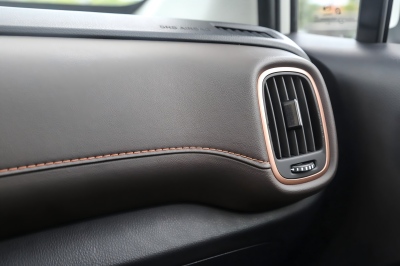
Advantages 3: Chemical Stability – Resisting Everyday Corrosion
1. Chemical Resistance:
● Performance: Nylon has good resistance to most common weak acids and weak alkalis (e.g., sweat, cleaning agents). It is insoluble in common organic solvents.
● Practical Significance: When cleaning and maintaining interiors with cleaners, the stitch line is not corroded or damaged. Human sweat and oils also do not significantly affect it.
![]() Nylon 66 Bonded Sewing Thread Bonded Nylon 6,6 Thread Bonded Polyamide 6.6 Sewing Thread Automotive Interior
Nylon 66 Bonded Sewing Thread Bonded Nylon 6,6 Thread Bonded Polyamide 6.6 Sewing Thread Automotive Interior
Ningbo Tayyon Thread Co., Ltd.
 Beicun, Dongwu Town, Yinzhou District, Ningbo City, Zhejiang Province, China
Beicun, Dongwu Town, Yinzhou District, Ningbo City, Zhejiang Province, China
 Tel./Fax: 0086-574-88381625
Tel./Fax: 0086-574-88381625
 Email: info@tayyon.com
Email: info@tayyon.com